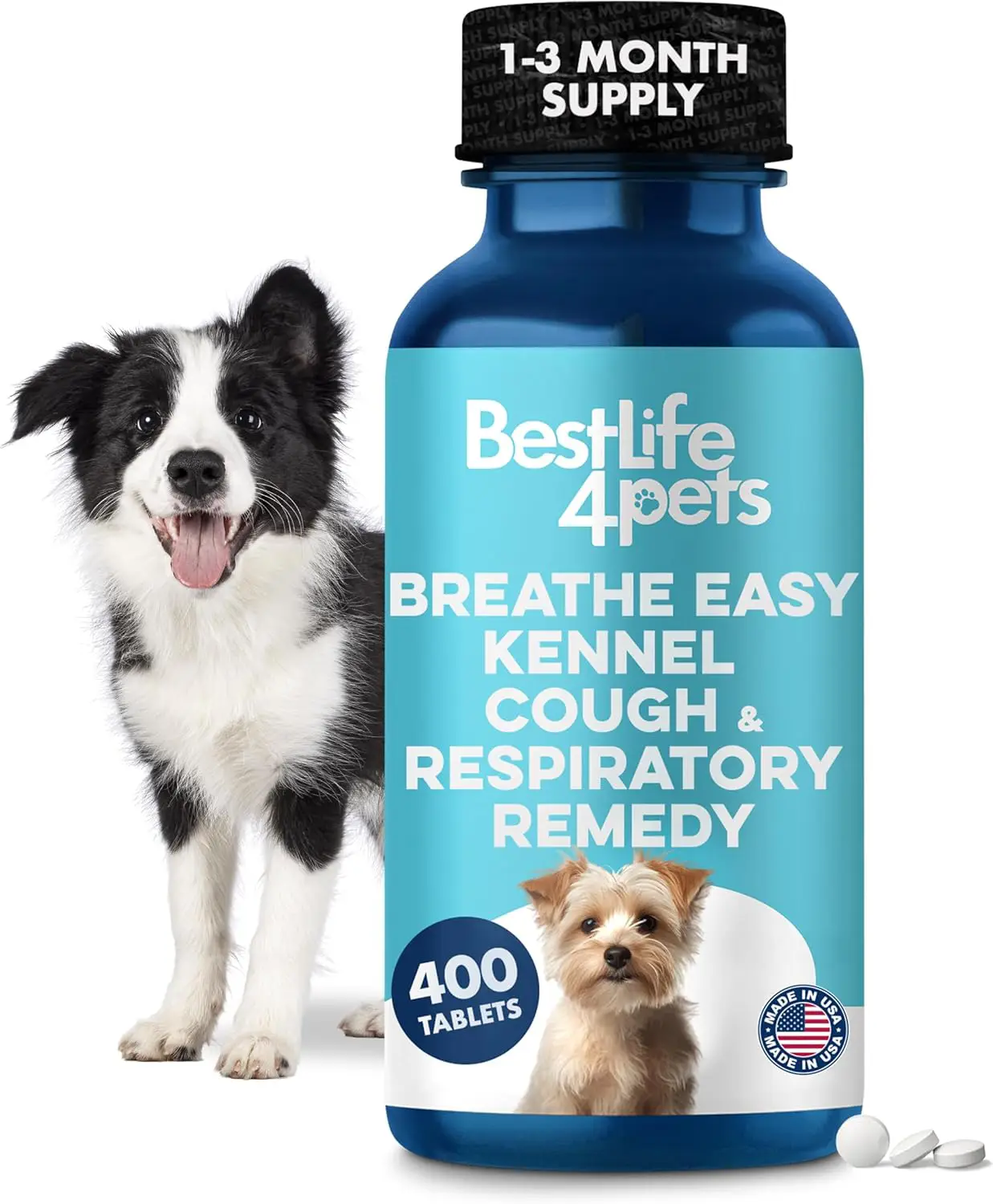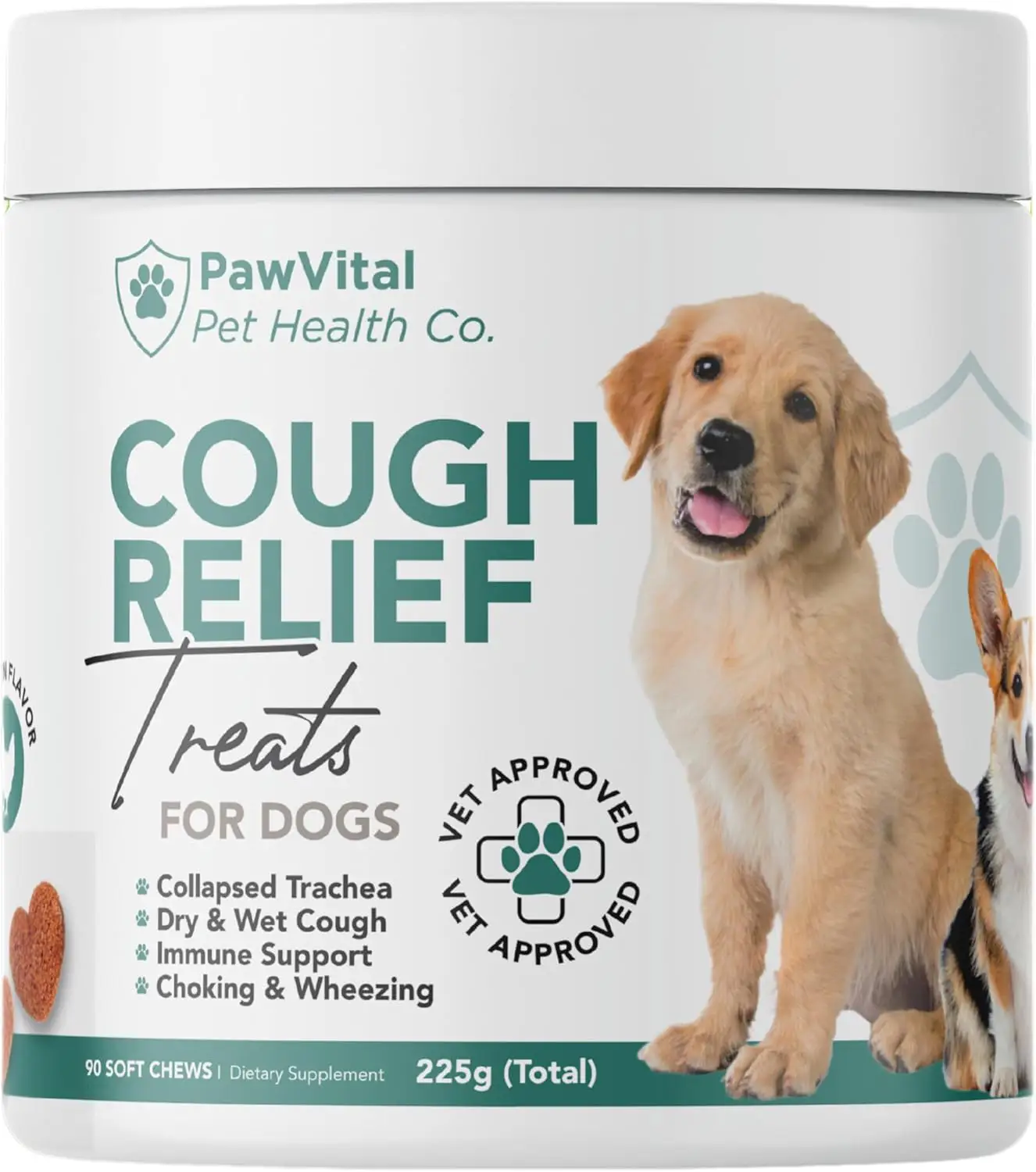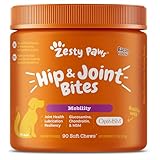Natural dog cough remedies are becoming more popular among pet parents—and for good reason. Unlike many over-the-counter medications meant for humans, which can be harmful or even toxic to dogs, natural options focus on soothing symptoms while supporting the body’s healing process. Think of it this way: instead of suppressing the cough completely, natural remedies aim to strengthen the immune system, reduce throat irritation, and improve comfort.
One of the biggest benefits is safety. Human cough medicines often contain ingredients like xylitol, acetaminophen, or dextromethorphan, which can be dangerous for dogs.
Choosing a natural route means you avoid those risks. Another reason pet owners lean toward holistic care is that it treats the whole dog—not just the symptoms. A healthy gut, strong immunity, and reduced inflammation all contribute to a quicker recovery.
That doesn’t mean natural remedies replace veterinary care. If your dog has a serious underlying condition, natural methods should only be used alongside professional treatment. But for mild coughs, especially from kennel cough, allergies, or environmental irritants, these home remedies can make a world of difference. It’s about giving your furry friend comfort without side effects.
Natural Dog Cough Suppressant & Cold Remedy

Dog Cough Medicine – 100% Natural

7 Natural Dog Cough Remedies
- Honey – A Natural Soother
- Coconut Oil – Boosting Immunity
- Herbal Teas (Licorice Root, Chamomile, Slippery Elm)
- Steam Therapy – Breathing Relief
- Probiotics
- Bone Broth – Nourishing and Healing
- Humidifiers – Easing Throat Irritation
1) Honey – A Natural Soother
Honey is one of the oldest natural remedies in the book, and yes, it works wonders for dogs too. Just like it soothes a sore throat in humans, honey coats a dog’s throat, reducing irritation and calming that dry, hacking cough. It also has natural antibacterial and antimicrobial properties that help fight off minor infections.
A spoonful of honey given once or twice daily can provide quick relief. For smaller dogs, half a teaspoon is enough, while larger dogs can have up to a full teaspoon.
Not all honey is created equal, though. Raw, organic honey is the best choice, as processed honey often loses many of its healing properties. Even better, manuka honey, known for its high antibacterial content, can be especially powerful.
But remember—honey isn’t for puppies under one year old due to the risk of botulism, and diabetic dogs should only get it under a vet’s supervision.
Honey is like a natural cough drop for dogs, offering both comfort and healing. If your dog’s cough is mild and caused by irritation, this simple kitchen remedy might be all they need to feel better.
2) Coconut Oil – Boosting Immunity
Coconut oil isn’t just for cooking—it’s a natural immune booster that can help dogs fight infections, including those that cause coughing. It contains lauric acid, which has antiviral, antibacterial, and antifungal properties. This makes it especially helpful for dogs dealing with kennel cough or other minor respiratory infections.
Adding coconut oil to your dog’s diet can strengthen their immune system, making it easier for them to recover. Start small—about ½ teaspoon per 10 pounds of body weight—and mix it into their food. Not only will it support their health, but most dogs also love the taste.
Another benefit of coconut oil is its soothing effect on inflammation. If your dog’s cough comes from throat irritation, coconut oil can help coat the throat and reduce discomfort. Think of it as a double-action remedy: strengthening immunity while calming irritation.
Coconut oil also supports overall health—improving digestion, skin condition, and coat shine. So while you’re treating your dog’s cough, you’re also giving them a health boost from the inside out.
3) Herbal Teas (Licorice Root, Chamomile, Slippery Elm)
Herbal remedies have been used for centuries to calm coughs, and dogs can benefit from them too. Certain herbs are safe and soothing for dogs, especially when brewed into a mild tea. Licorice root, for example, has natural anti-inflammatory and soothing properties that coat the throat. Chamomile relaxes the muscles, reduces stress, and can ease coughing triggered by irritation. Slippery elm, known for its mucilage content, creates a soothing film over the throat and digestive tract, calming inflammation.
To prepare, steep the herb in hot water, let it cool completely, and offer small amounts—either by spoon, mixed into food, or in their water bowl. Always use pet-safe herbs, and avoid strong concentrations. A teaspoon or two of the tea is enough for small dogs, while larger dogs can have more.
This gentle approach not only helps with coughing but also promotes relaxation and comfort. Herbal teas can be especially helpful for nighttime coughing, allowing your dog to sleep peacefully.
4) Steam Therapy – Breathing Relief
Steam therapy is one of the simplest yet most effective natural remedies for a coughing dog. Just like how humans benefit from steam when they’re congested or dealing with a sore throat, dogs can also find relief through warm, moist air. The steam helps loosen mucus, open up airways, and soothe irritated throat tissues, making it easier for your dog to breathe and reducing the urge to cough.
One of the easiest ways to try this is by creating a “steam room.” Run a hot shower, close the bathroom door, and sit with your dog in the room (not in the shower!) for about 10-15 minutes. The steam fills the air, and your dog inhales it naturally. This method works particularly well if the cough is caused by kennel cough, allergies, or dryness in the air.
For safety, always supervise your dog during steam sessions. Don’t place them too close to the hot water, and never leave them unattended in a steamy bathroom.
You can also invest in a pet-safe vaporizer or humidifier if you want to make steam therapy a regular part of your dog’s recovery. Not only does it relieve coughing, but it also keeps nasal passages moist, reducing irritation from dryness.
5) Probiotics
It might surprise you, but a large part of your dog’s immune system resides in their gut. That means supporting gut health can directly impact how well your dog fights off infections that cause coughing.
Probiotics—those beneficial bacteria that keep the digestive system balanced—can be a game changer.
When dogs are sick, stressed, or recovering from infections, their gut bacteria can fall out of balance. This weakens the immune system, making it harder to recover quickly.
By adding probiotics to their diet, you’re essentially giving their immune system a boost from the inside. Probiotics help the body fight off harmful bacteria, reduce inflammation, and strengthen overall immunity.
There are many probiotic options available for dogs, including powders, capsules, and even probiotic-rich foods like plain kefir or unsweetened yogurt. Always choose dog-safe products, as human supplements can sometimes contain additives that aren’t good for pets.
6) Bone Broth – Nourishing and Healing
When your dog isn’t feeling well, one of the best things you can do is offer bone broth. This age-old remedy is both healing and nourishing, providing comfort while giving your dog’s body the nutrients it needs to recover. Bone broth is rich in amino acids, collagen, minerals, and vitamins that support immunity, joint health, and gut healing.
For a coughing dog, bone broth does several things at once. First, it provides hydration, which is crucial for keeping the throat moist and reducing irritation. Second, it supplies easy-to-digest nutrients, especially helpful if your dog isn’t eating much due to feeling unwell.
Third, the warmth of bone broth can soothe throat irritation, similar to how chicken soup comforts humans with colds.
Making bone broth at home is simple: simmer beef or chicken bones (with some cartilage) in water for 12-24 hours. Avoid adding onions or garlic, as these are harmful to dogs. Strain the broth, cool it, and serve it in small amounts. You can also freeze it in ice cube trays for convenient single servings.
7) Humidifiers – Easing Throat Irritation
Sometimes, the air in your home can actually make your dog’s cough worse. Dry air irritates the throat and airways, causing coughing to linger. This is especially common in winter, when heaters dry out indoor air. Using a dog firendly humidifier can make a huge difference in your dog’s recovery.
A humidifier adds moisture to the air, preventing the throat from drying out and reducing coughing spells. It’s particularly helpful at night, when your dog needs restful sleep to heal. Place a pet-safe humidifier in the room where your dog spends the most time, and keep it running at a comfortable level.
If you don’t have a humidifier, even placing bowls of water around your home or hanging damp towels near heating vents can add some extra moisture to the air. Just be sure to keep things safe and avoid strong essential oils, as many are toxic to dogs.
Supporting Your Dog’s Recovery
While natural remedies work wonders, your dog’s overall recovery depends on more than just treating the cough. Proper care, nutrition, and comfort play a massive role in how quickly they bounce back. First, focus on nutrition. Feeding your dog high-quality, nutrient-rich foods supports the immune system. Lean proteins, fresh veggies (like carrots and spinach), and omega-3 fatty acids from fish oil can all strengthen immunity and speed up healing.
Hydration is equally important. Just like people, dogs with coughs often feel tired and may drink less water. Encourage hydration by offering fresh water frequently and supplementing with hydrating foods like bone broth or water-rich fruits (safe ones like watermelon or cucumber).
Rest is another key factor. If your dog is coughing, avoid strenuous exercise, long walks, or exposure to cold weather. Instead, provide a calm, cozy environment where they can relax. Stress-free surroundings allow their body to focus energy on healing instead of burning it through activity.
Finally, keep your dog’s environment clean. Dust, smoke, and strong fragrances can all worsen coughing. Vacuum regularly, avoid smoking near your pet, and make sure their bedding is fresh and free from allergens.
Supporting your dog’s recovery is about creating balance: nourishing their body, providing comfort, and removing irritants. When combined with natural remedies, these small but powerful steps can cut recovery time in half.
When to See a Vet
Natural remedies can do wonders for mild coughs, but sometimes professional help is necessary. Knowing when to call the vet is crucial because a lingering cough may point to a more serious condition than just throat irritation. If your dog has been coughing for more than a week without improvement, it’s time to make an appointment.
There are also specific red flag symptoms every pet parent should look out for:
- Difficulty breathing or wheezing
- Blue or pale gums, which signal low oxygen levels
- Coughing up blood or thick mucus
- Severe lethargy, loss of appetite, or fever
- Collapsing or fainting during coughing fits
These symptoms can indicate pneumonia, heart disease, collapsing trachea, or other respiratory illnesses that require medical treatment. In some cases, a persistent cough may even be linked to parasites such as heartworms, which are life-threatening if left untreated.
It’s also important to note that senior dogs, puppies, and dogs with underlying health conditions (like heart disease or compromised immune systems) are more vulnerable. For them, even a mild cough can escalate quickly.
A vet visit might involve diagnostic tests such as chest X-rays, bloodwork, or even a tracheal wash to identify the cause of the cough. Once the underlying issue is clear, your vet can prescribe medication if necessary—such as antibiotics for infections, bronchodilators for airway support, or heart medication if the cough is heart-related.
The best approach is balance: natural remedies for comfort and immunity, combined with professional veterinary care when needed. Don’t think of it as “natural vs. medical”—think of it as working together to give your dog the best care possible.
You May Also Like To Read:
- Nutramax Dasuquin Joint Health Supplement For Dogs
- Techniques For Managing Separation Anxiety in Dogs
FAQs
Can I give my dog human cough syrup?
No. Most human cough syrups contain ingredients like xylitol, acetaminophen, or alcohol, which are toxic to dogs. Always stick to dog-safe natural remedies or medications prescribed by a vet.
How long does kennel cough last?
Mild cases of kennel cough usually clear up within 2–3 weeks, especially with natural remedies and proper rest. Severe cases may take up to 6 weeks and sometimes require veterinary treatment.
Are essential oils safe for dogs with coughs?
Not all. Some essential oils, like eucalyptus, tea tree, and peppermint, are toxic to dogs. Always avoid using essential oils in steam or humidifiers unless specifically recommended by a vet.
Can puppies use natural remedies safely?
Yes, but with caution. Puppies have delicate immune systems, so stick to mild remedies like honey (only if older than 12 months), bone broth, and humidifiers. Always consult your vet before trying new treatments on young pups.
What’s the best prevention for dog coughs?
Prevention includes keeping your dog’s immune system strong with a healthy diet, regular exercise, and probiotics. Avoid exposure to smoke, dust, and sick dogs. Vaccines (like Bordetella) also help prevent kennel cough.










![Can Dogs Eat Blood? 7 Side Effects [Expert Opinion]](https://petskor.com/wp-content/uploads/2022/04/Webp.net-resizeimage-12.jpg)
